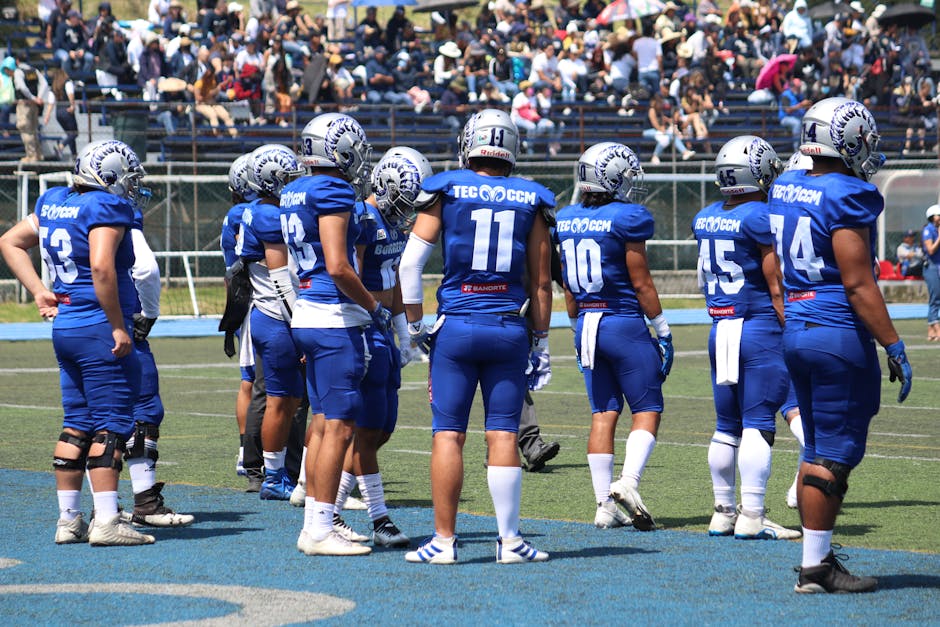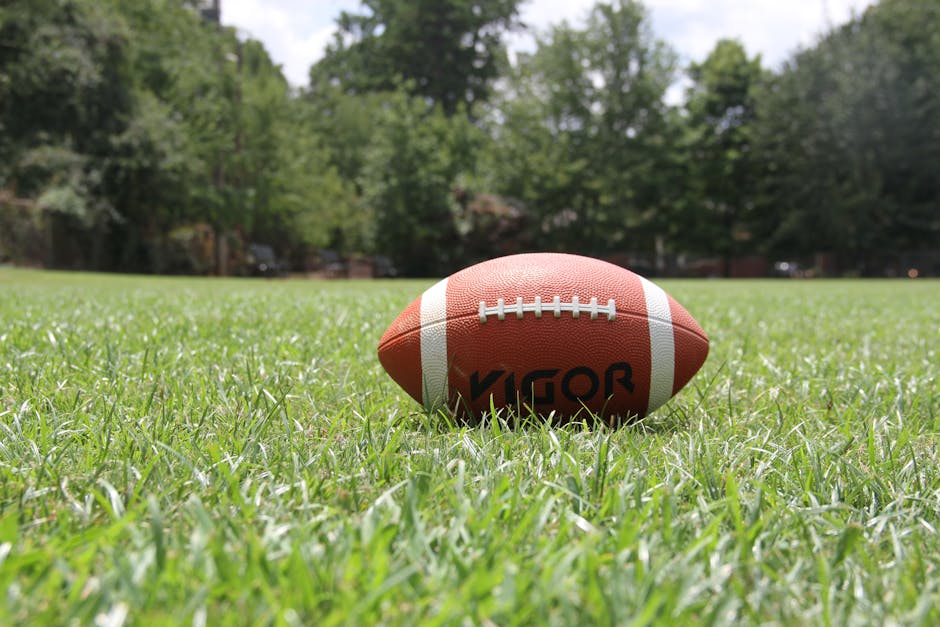The Thrill of the Game: Exploring American Football's Pros and Cons
Is American Football More Beneficial or Detrimental?
American Football is one of the most popular and exciting sports in America, captivating millions of fans with its high-energy games, strategic plays, and thrilling moments. The sport combines physical prowess, mental agility, and teamwork, making it a favorite pastime for players and spectators alike. However, beneath its thrilling exterior, American Football carries a range of advantages and disadvantages that provoke debates among fans, parents, and health professionals. In this article, we delve into both sides of the game, examining its potential benefits and its inherent risks.
As American Football continues to gain global traction, understanding its multifaceted nature becomes increasingly essential. Whether it's fostering a sense of community, enhancing physical fitness, or posing serious health risks, the sport's duality cannot be ignored. Parents contemplating enrolling their children in football programs may find themselves wondering: Is the sport worth the risks? In the following sections, we will explore the various pros and cons that define American Football, providing a comprehensive overview of its impact on players, families, and society.
Pros
American Football is known for its incredible capacity to foster camaraderie and promote physical fitness. This high-contact sport provides numerous benefits, making it an attractive option for athletes of all ages. From building teamwork skills to enhancing strategic thinking, the advantages of American Football extend far beyond the field. Let’s explore the positive aspects of this popular sport that contribute to the growth and development of players both on and off the gridiron.
Career Opportunities: Pathways Beyond the Field
Participating in American football opens doors to various career opportunities beyond playing professionally. Many players transition into coaching, sports management, broadcasting, or physical therapy. The skills developed on the field are highly valued in numerous professions, and the sport also provides networking opportunities that can be beneficial for future career paths.
Teamwork and Camaraderie: The Bond Built on the Field
One of the most notable advantages of American Football is the emphasis on teamwork. Players must work together to execute plays, support one another, and achieve a common goal: winning games. This fosters a sense of camaraderie among teammates, providing a space for friendships to blossom. The ability to collaborate in challenging situations is a skill that players can carry into their personal and professional lives, enhancing their communication and leadership abilities.
Physical Fitness: A Full-Body Workout
American Football is a fast-paced sport that requires strength, speed, agility, and endurance. Engaging in this sport ensures participants are physically fit as they partake in rigorous training and practice sessions. Players improve their cardiovascular health, increase muscle mass, and develop coordination. This commitment to physical wellness not only helps them excel on the field but also instills healthy habits that can last a lifetime.
Strategic Thinking: Planning for Success
The strategic element of American Football cannot be overlooked. Players must understand complicated plays and make quick decisions, often in high-pressure situations. This mental agility enhances cognitive skills and critical thinking abilities, which are beneficial beyond the football field. These skills can also prepare players for future challenges in everyday life, promoting effective problem-solving and adaptability.
Discipline and Time Management: Learning Life Skills
American football requires a rigorous practice and game schedule that forces players to develop strong discipline and time management skills. These skills often translate into their academic and personal lives, helping them prioritize tasks, manage their time efficiently, and commit to long-term goals. Understanding the importance of discipline is invaluable as they navigate the challenges of life beyond the gridiron.
Diversity and Inclusion: Uniting Different Backgrounds
The sport of American football brings together individuals from various backgrounds, allowing them to work towards a common goal. This diversity fosters an environment of inclusion, teaching players to appreciate different perspectives and experiences. Learning to collaborate with teammates from various cultures and walks of life enriches players' community awareness and promotes a sense of belonging.
Missing a pro?
Let us know which pro you are missing!
Cons
While American Football offers several appealing benefits, it undeniably comes with significant drawbacks that players and parents must consider. From the risk of injuries to the potential for long-term health consequences, the darker aspects of the game can raise concerns. This section will delve into the various disadvantages of American Football, ensuring that athletes and enthusiasts are aware of the potential hazards associated with this thrilling sport.
Injuries: The Price Players May Pay
One of the most pressing disadvantages of American Football is the high incidence of injuries. Players often suffer from a variety of injuries, including concussions, torn ligaments, and fractures. Despite safety measures and protocols, the contact nature of the sport exposes players to significant risks that can have lasting impacts on their health. Parents and players alike must weigh the potential for injury against other considerations when deciding whether to participate.
Mental Health Risks: The Pressure to Perform
The competitive environment of American Football can contribute to high levels of stress and anxiety for players. The pressure to perform well, secure scholarships, and meet expectations from coaches and fans can take a toll on mental health. Over time, this stress may lead to burnout or other psychological issues that negatively impact players' overall well-being. Awareness and support are essential to help mitigate these risks in the demanding world of sports.
High Financial Costs: The Burden of Participation
Playing American football can come with significant financial costs, including equipment, uniforms, and fees for participation in leagues or teams. For some families, these expenses can be a barrier to entry, preventing children from experiencing the sport. Additionally, the financial pressure can escalate at the higher levels of play, where specialized coaching and training facilities become necessary, further limiting access for those from lower-income backgrounds.
Burnout: The Toll of Intense Commitment
The demanding nature of American football can lead to player burnout, especially among young athletes. With rigorous training schedules, high expectations from coaches and parents, and the pressure to perform, players may experience fatigue or lose interest in the sport altogether. This burnout can affect their overall enjoyment of the game and lead to a negative association with football, ultimately impairing their development and passion for the sport.
Uncertainty of the Future: The Risk of the Sport's Popularity
The future of American football is uncertain due to rising concerns over player safety, particularly regarding concussions and long-term health effects. As awareness increases, there may be a decline in the number of youth and high school players participating. This decline can significantly impact the sport’s growth and lead to reduced opportunities for aspiring players, coaches, and associated careers within the football ecosystem.
Shortened Career Span: The Reality of Players' Lifespans
Many football players face shortened career spans due to the physical toll the sport takes on their bodies. The constant wear and tear from practices and games can lead to premature retirements or long-term health issues. Many players find it challenging to transition to life after football, leading to the need for support systems to assist them as they move on from their playing days. This reality raises concerns about the sustainability of a career in this exhilarating yet dangerous sport.
Missing a con?
Let us know which con you are missing!
Conclusion
In summary, American Football is a dynamic sport that encompasses a range of advantages and disadvantages. While it promotes teamwork, physical fitness, and strategic thinking, the risks of injury and mental health challenges dominate the conversation surrounding the game. As such, individuals considering participation must weigh these pros and cons carefully, ensuring that informed decisions lead them on the path to a rewarding and safe experience in the world of American Football.
What do you think?
Do you think the pros outweigh the cons?










